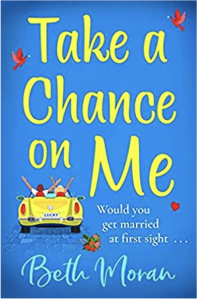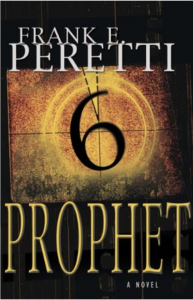C.A. Gray's Blog, page 29
June 10, 2022
Take a Chance on Me by Beth Moran
This week’s podcast comes from this blog review of Take a Chance on Me, by Beth Moran.
The post Take a Chance on Me by Beth Moran appeared first on C.A. Gray.
June 3, 2022
Poldark, Winston Graham
This week’s podcast comes from this blog review of Poldark.
The post Poldark, Winston Graham appeared first on C.A. Gray.
June 1, 2022
Review of Take a Chance On Me

My least favorite Beth Moran book yet. She still hooked me early on, such that I raced through the book… but as the story went on, it was increasingly cringe-inducing. And also a bit gimmicky and far-fetched.
The story follows both Emma and Cooper, separately… sort of. Emma is the main character, the eldest of five sisters and the only one who is still single. Three of her sisters are married, and her youngest sister, Bridget, is her roommate and engaged. Bridget is a post-doc in psychology, and finds herself spearheading a blind *marriage* project begun as a bet between two professors with a personal vendetta. Meanwhile, Cooper is Bridget’s research partner. He’s been madly in love with her for years, but she has no idea, since she’s been with her fiance forever.
If it sounds like Bridget should be the heroine of the story, that’s really how I felt too. Emma is almost a vehicle, except Moran made her the viewpoint character. So we sympathize with Emma, not Bridget. As the sympathetic 33-year old spinster, tired of always being alone, Emma signs up for Bridget’s project. Meanwhile, hoping to get over Bridget and also to marry into Bridget’s wonderful family, Cooper signs up too. So Cooper ends up married to Bridget’s sister. What could go wrong, right?
***Spoiler alert*** I had hoped, given that Emma is the viewpoint character, that she would still get her happily-ever-after. That somehow, Cooper would fall in love with her instead. But, alas, the story ends how you’d expect. Our heroine devastated, overlooked yet again, and her relationship with her sister destroyed for at least a year. Then eventually, Bridget and Cooper get their happily-ever-after. We’re glad for Cooper, but Bridget was never really as likable a character because through Emma’s eyes, she always felt like a rival. The guy Emma was really attracted to for the whole book does pursue her in the end, but for unclear reasons, Emma turns him down. (Was this a “not everyone needs a man” theme or something? That’s a fine theme in its place, but it’s not why we read chick lit.) I guess at least it was Emma’s choice, but geez, what a let-down all around!
My rating: ***
Language: none
Violence: none
Sexual content: none
Political content: mild
The post Review of Take a Chance On Me appeared first on C.A. Gray.
May 27, 2022
Just the Way You Are, Beth Moran
Today’s podcast review comes from this blog review of Just the Way You Are.
The post Just the Way You Are, Beth Moran appeared first on C.A. Gray.
May 24, 2022
Review of Poldark

My husband and I are watching the “Poldark” series, so I picked this up–not realizing that the series is quite so long! Each volume has a different character’s name on it, too, and apparently they include Ross’s children by book 3. So I’m wondering how that’s going to translate to the series–is it going to be a sweeping family epic, or will they keep the same characters and go off-script from the books?
Anyway, the story opens with Ross Poldark, a British captain, lying bleeding and left for dead on American soil during the Revolution. He returns home with a scar on his face and a limp (which isn’t in the series), but he’s been away for years. When he gets home, he finds that Elizabeth, the woman he thought himself all but engaged to, is now about to marry his cousin, Francis. He still loves her and is devastated–though Graham sticks to what can be observed from the outside, for much of the book. He occasionally will venture inside Ross’s head, but what he shows us is so terse and “stiff upper lip” that he might as well not have bothered. Ross comes off like the sort of man who would have a very hard time even labeling his feelings, let alone expressing them. (I can definitely tell the book was written by a man!)
Ross also finds that his father has died, the two servants his father left behind are utterly worthless, and Ross has a job trying to make them earn their keep. He owns a mine, but it’s hardly profitable. He employs many miners too, and owns additional properties, but he’s inclined to give them away for free. He sympathizes with the struggles of the lower classes to the point where I can’t quite figure out how he manages to maintain himself financially, let alone everyone dependent upon him. There’s a lot of intrigue to do with financial loans, bankers, gambling, miscarriage of justice, and more, but it’s all very episodic–which lends itself well to a TV series.
Ross’s relationship with Francis is strained over his marriage to Elizabeth for awhile, though they try to make amends, since they are Ross’s only family. In the series, there’s a very clear love triangle even after the wedding, but in the book it’s clear that Elizabeth doesn’t love Ross anymore and she really did want to marry Francis. (Francis, however, has almost zero redeeming qualities, so this seems pretty hard to fathom.) By and by, Ross rescues a 14-year old girl from an abusive father, and employs her as his kitchen wench. This sets off a big row because she’s under-age, and it looks like he basically kidnapped her. Demelza at first is so dirty and bedraggled and underdeveloped that she could be mistaken as a boy. But years pass in the span of a few chapters, and suddenly she’s 17, and spirited, if not quite a beauty.
When Demelza’s formerly abusive father suddenly finds religion and comes to fetch her home, Demelza realizes that she adores Ross and can’t bear to leave him, but she suspects that he would consider it the right thing to do. The only way she can contrive to stay is to seduce him. So she does, very clumsily, but he capitulates in the end. Always one to do what he considers to be the right thing, Ross promptly marries her after that. This is the most introspective segment of the novel: we get glimpses into both Demelza’s and Ross’s minds as their relationship progresses. It’s sweet, in both the show and the book, to watch them fall in love after the fact, and become happy together.
I’m enjoying the show, but the book is so very similar to the show, and I don’t gain much additional insight from the narration. So I may not read on. We’ll see.
My rating: ****
Language: none
Violence: none
Sexual content: present, but very much in a fade-to-black kind of way
Political content: none
The post Review of Poldark appeared first on C.A. Gray.
May 20, 2022
The Oracle, Jonathan Cahn
Today’s podcast comes from this blog review of The Oracle.
The post The Oracle, Jonathan Cahn appeared first on C.A. Gray.
May 18, 2022
Review of Just the Way You Are

While this one had the signature charm of a Beth Moran novel (of the two I’d read before this one), and followed the same basic plot structure, it was decidedly my least favorite thus far.
First of all, 29-year old Ollie was not 100% likable. Her origin that she must leave in order to find a new life for herself, in this story, was her mum’s house. Her mum is massively codependent and hypochondriacal, and Ollie has adapted her life to allow her mum to control her–which meant that she lost her fiance years ago when he tried to tell her that her mum was making up (or psychosomatically manifesting) her chest pains in order to keep Ollie from getting married and moving away. So with the help of her best friend Steph, Ollie finally decides that, if she’s ever going to get her own life, she’ll have to do so behind her mum’s back. She buys a little cottage in another little town not too far away, gets a friend of hers to lie to and manipulate her mum into allowing the friend to move in as her new roommate, and then leaves, without telling her mum where she’s going. Then she completely cuts her off and blocks her phone number. To be fair, Moran’s depiction of Ollie’s mom truly is full-on crazy, but the way Ollie treated her mother was kind of awful.
Then she gets to her new town, and her friend Steph challenges her to complete her “bucket list” she’d written for herself when she was 16 years old, intending to complete them with her soulmate. Social worker Steph wants Ollie to learn that she doesn’t need a man to complete her–and so she gets Ollie to agree to a “no man mandate” until she’s successfully checked off every item on the list, by herself.
The “no man mandate” is immediately challenged when she meets the hot forest ranger Sam. Her intentions to become her own person are likewise challenged when she meets her 11-year old neighbor Joan, whose mother comes off kind of like a neglectful and hardened crack addict. Ollie at first worries for Joan’s well-being and considers calling CPS, but eventually she hears Joan’s mum Leanne’s story and tries to rescue them both. Steph gets after her for this, for simply substituting Joan and Leanne for her mother. Sam, meanwhile, pops up every time she turns around, Ollie learns early on that he’s off-limits (or so she thinks). He was once an engaged attorney, but that life choked him, and so he gave it all up and moved back to the tiny town where he grew up.
The progression of the story is more or less predictable, filled with likable characters as most of Moran’s books seem to be. The story affirms the importance of relationships in general, and of all kinds. It was clean, though I did notice a smattering of woke ideas and subtle political jabs which weren’t present in her previous two books. Maybe this one is just more recent, since it seems big publishers must require all that these days.
My rating: ***1/2
Language: none
Sexual content: none
Violence: none
Political content: subtle but present, and scattered in quite a few places
The post Review of Just the Way You Are appeared first on C.A. Gray.
May 13, 2022
Endurance, Alfred Lansing
This week’s podcast review comes from this blog review of Endurance.
The post Endurance, Alfred Lansing appeared first on C.A. Gray.
May 12, 2022
Review of Prophet

I love when I find Christian authors that manage not to be cheesy. So often the authors feel so strongly about their message that the story and characters suffer in service to it. Peretti’s stories definitely do not have that problem, or at least not the two I’ve read recently.
The story follows John Barrett, top news anchor in his city. In terms of career, he’s on top of his world. He was once a Christian, but walked away from his faith long ago. His father is what John considers a religious zealot: he’s one of those guys who shows up at political rallies and preaches against abortion. John is embarrassed when this very thing is captured on film, and it turns into a riot. He confronts his father, who tearfully tries to tell him that he must say what God gives him to say, even if nobody listens. Then, suddenly, he dies–ostensibly in an accident at the warehouse he owns. At his funeral, John reconnects with his own estranged teenage son, who is searching for meaning. They have very little to say to each other, partly because John is polished and news-perfect all the time, while Carl has little patience with anyone who isn’t real.
What John doesn’t tell Carl then, and tries not to tell anyone, is that he’s started having visions himself. He writes them off as flashbacks from old drug trips, but his father’s visions seemed eerily similar. John knows things about people that he shouldn’t know. On a lark, he tells his son to follow up on one of them with a waitress, and learns about Annie Brewer, a teenage girl who had recently died of a botched abortion–only, no one will follow up and investigate the clinic for malpractice or hold them responsible. John learns that Annie’s father was a friend of his father, and also appeared at the riot/rally just before Barrett Sr’s death. He and Annie’s mother have been fighting for justice and for someone to investigate. One thing leads to another, and with the help of another reporter from News 6, John learns that the story goes straight to the governor’s doorstep: his daughter, too, died of a septic abortion, from the very same clinic, and the governor knew it. But he covered it up for political reasons and publicized a false story. John, Carl, and everybody involved get stonewalled everywhere they turn as they try to uncover the story, and John faces censorship and “spin” at work for pursuing a story that is politically incorrect.
As this unfolds, despite John’s periodic flashes of insight into deeper reality–spiritual visions, minus the angels and demons–John is forced to question what really matters to him. He has a lot to lose, and he’s not even sure he believes in God. He certainly had very little respect for his religious zealot father. Is it worth it to him to pursue the truth just because it’s the right thing to do–regardless of what it costs him, or whether it even makes a difference?
I found John’s character arc to be mostly very believable (one scene was an exception and felt pretty rushed to me). His visions were fascinating and insightful. Spiritual implications aside, the story itself was also a good thriller with a satisfying conclusion. I’ll read more by Peretti for sure!
My rating: *****
Language: none
Violence: present but very tame
Sexual content: none
Political content: present, but not as you might expect. It’s not even really about pro-choice/pro-life as a political issue; it’s about how the fact that it is politically charged can lead some to overlook blatant injustice, and others cut corners in a lucrative industry to turn a larger profit.
The post Review of Prophet appeared first on C.A. Gray.
May 6, 2022
Review of The Oracle

Wow. This was incredible, sweeping, and epic! Also, a genre unto itself. I’m not even sure how one would classify it. It’s non-fiction, but set in a fictional frame story. A narrator is given a series of fictional visions that follow the pattern of biblical prophecy. He meets a traveler to whom he recounts both the visions, and his subsequent encounters with the Oracle, who interprets the visions for him. The interpretation of the visions are non-fiction, though they incorporate both biblical and extra-biblical prophecy, and their later historical fulfillments as they pertained to the birth, scattering, and rebirth of the nation of Israel. The story told all revolves around the concept of the Jubilee, a Levitical principle of the restoration of land and property to the original owner every 50 years.
Cahn’s research is so meticulous and the fulfillments he describes so exact and detailed that after listening to the audio version, I downloaded the kindle version anyway so that I could highlight and save the notes for later perusal. I love how so many of these perfect fulfillments from 1867 on through 2017 are down to the exact day on a 50 year cycle (or sometimes a 70 year cycle–the 70 comes into play in reference to Jerusalem’s 70 years of captivity as prophesied by Jeremiah, and Daniel’s 70 week prophecy in Daniel 9). Even the names of the players involved are prophetic, and history had to happen ‘just so’ in order to bring it all together. It’s so exactly the kind of thing that God would do–to engineer details down to the minutiae, even though it went completely unnoticed for generations. Many of the fulfillments had multiple levels to them, which is also just like God, and consistent with everything else I know about scripture. The verse that kept coming to me as I read this was, “It is the glory of God to conceal a matter and the glory of kings to search it out” (Proverbs 25:2). He hides things for us, not from us–and I believe He is pleased when we’re intrigued enough to seek the truth. (I sort of envision a Father hiding Easter eggs for His kids, and making them progressively more difficult to find as the child ages, commensurate with the child’s abilities. Make it too easy, and the game isn’t fun…)
I suspect there are infinite Easter eggs still out there, just waiting to be found!
My rating: *****
Language: none
Sexual content: none
Violence: none
Political content: depends on how you classify ‘political.’ Modern political administrations are mentioned.
The post Review of The Oracle appeared first on C.A. Gray.



